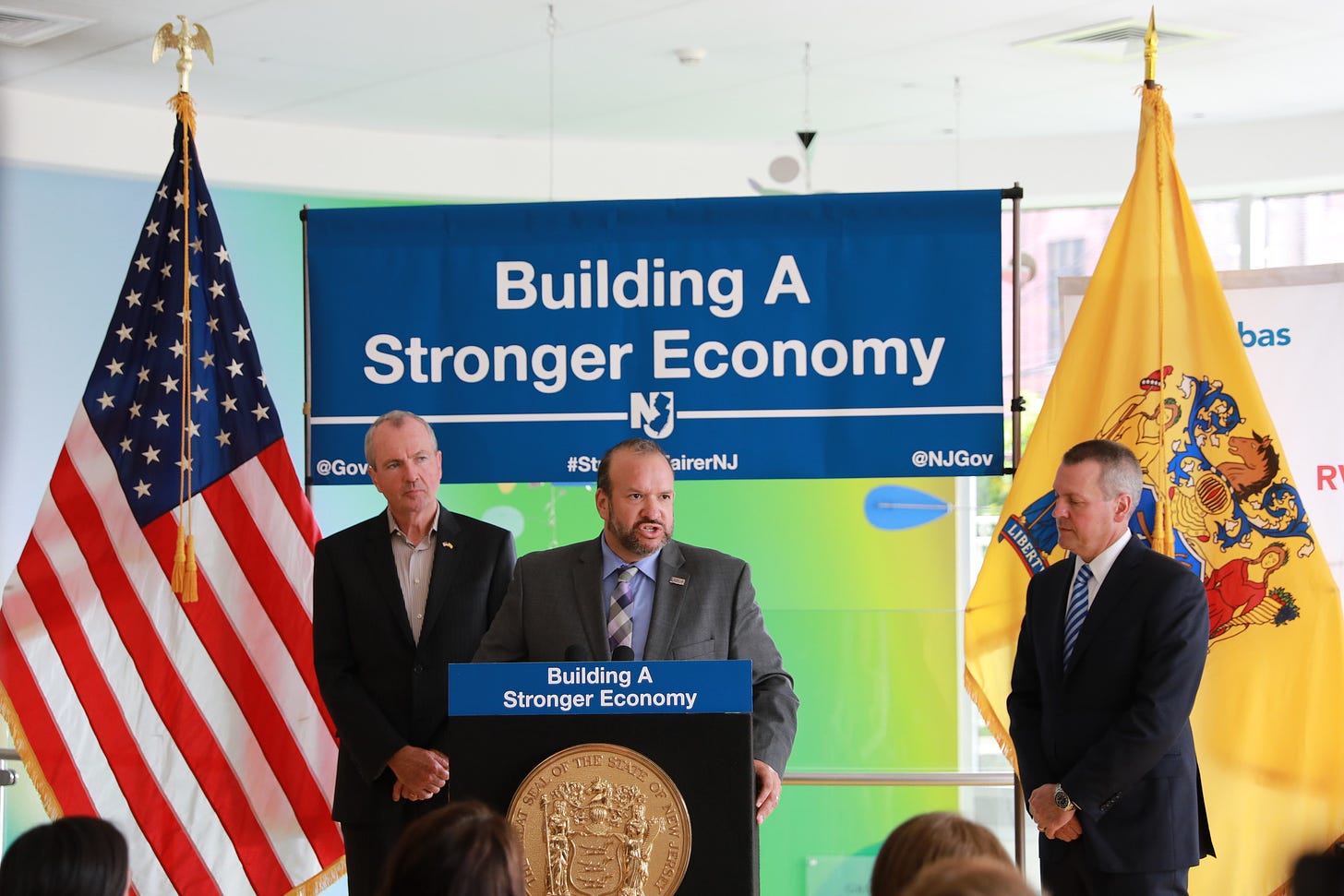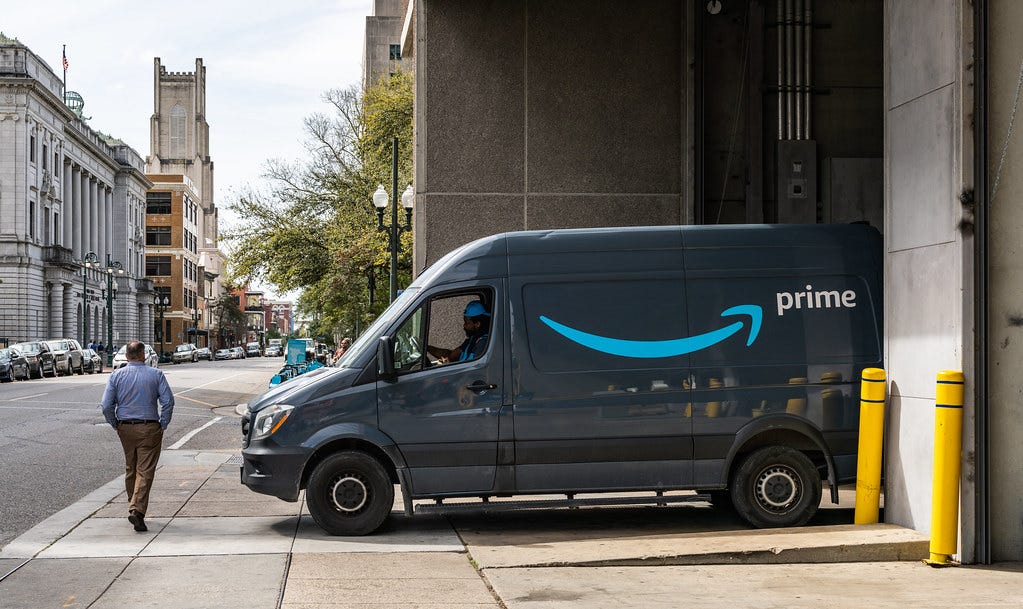Uber's $100M Settlement with New Jersey | Roundup #3
Plus: Algorithmic Management in California's Heatwaves

Welcome new readers! This is a weekly roundup where I share the 2-3 most interesting articles, quotes, charts, or other tidbits from what I’ve read in labor topics the past week. If you’re trying to quickly come up-to-date on news in labor policy, economics, and how technology is affecting workers, this is for you.
Last week’s roundup on The ‘Quiet Quitting’ Phenomenon triggered some interesting conversations with readers, which challenged me to see the phenomenon from different perspectives. I really enjoy those (it’s a big reason I started this blog), so excited to continue to hear your feedback and comments.
The roundup also received some debate on Hacker News (thanks AJ for posting). Most folks of course didn’t read my full post — a good number of comments were about how a better term for “quiet quitting” would be “just doing your job.” That’s fair. But my favorite comment was from HN user bitwrangler:
I appreciate the nod [in Workonomics] to the prophetic movie Office Space, but I think they missed the most appropriate scene about wearing the minimum pieces of flair.
Totally forgot about that scene. I may or may not try to put the rest of Office Space, clip by clip, in these posts. On to the roundup!
Uber Finally Pays NJ $100M for Unemployment Insurance
From Chris Marr at Bloomberg Law:
Uber Technologies Inc. paid $100 million to New Jersey to resolve allegations of misclassifying its drivers and failing to pay unemployment insurance taxes, the state’s labor department said Tuesday morning.
The payment is the latest big company payout in the wide-ranging legal battle over the employment status of rideshare and delivery drivers. Companies such as Uber, Lyft Inc., Doordash Inc., and Grubhub Inc. routinely classify their drivers as independent contractors.
Workers in this category don’t qualify for the legal protections and workplace benefits available to those who are deemed employees, including minimum wage and overtime laws, unemployment insurance, workers’ compensation, and the federally protected right to form or join a labor union.
Unemployment insurance helps pay for a portion of workers’ wages when they become unemployed — something to help them get back on their feet and into another job. It gets funded by an unemployment insurance tax paid by all employers, and unemployment insurance funds are managed at the state level.
Uber itself has advocated for unemployment insurance for its workers — it just didn’t want to pay for it. In the beginning of the pandemic, Uber pleaded the federal government to include its drivers and couriers in emergency Pandemic Unemployment Assistance (PUA) benefits under the CARES Act. When PUA was eventually granted to gig workers, federal taxpayers effectively footed the bill. Gig companies never had to pay a cent into insurance funds.
The New Jersey settlement is a big win in the effort to get Uber to contribute to unemployment insurance.1 To put it in perspective, $100M is the largest individual misclassification settlement Uber has ever agreed to pay (it paid $20M in 2019, and $8.4M earlier in 2022). It’s also the largest back payment in history to New Jersey’s unemployment insurance fund.
Uber, in theory, is obligated to pay unemployment insurance for its workers in 18 other states with similar labor laws to New Jersey. We’re talking hundreds of millions, perhaps billions of dollars in back payments. And that doesn’t even include the other gig companies.
There are some drawbacks to the settlement, as Marr reports:
Uber and [Rasier LLC, an Uber subsidiary] aren’t required to change the way they classify drivers or to begin paying into the state’s UI trust fund going forward.
At the same time, New Jersey officials aren’t precluded from pursuing further UI tax payments from Uber through additional or future audits, said Angela Delli-Santi, a spokeswoman for the state’s labor department.
It’s unclear why the settlement can’t force Uber to reclassify its workers, even though Uber is already in violation of NJ law. There may be a specific legal reason. But at least in the meantime, getting Uber and other gig companies to pay these unemployment insurance taxes will be pulling teeth.
Algorithmic Management and California’s Heatwave

Despite record temperatures in California, Amazon’s package delivery workers need to work harder than ever. Algorithmic management, which entails the use of technology to surveil and control a workforce, may be forcing workers to trade off between their own health and their performance on the job.
As Avi Asher-Schapiro with the Thompson Reuters Foundation reports:
Drivers working for Amazon [Delivery Service Providers (DSPs)] are monitored on a range of categories - from the speed of their deliveries to the number of returned or stolen packages and the safety of their driving - by Amazon tech tools installed in vans and on their cellphones….
[One] DSP manager in Sacramento, California, said in recent weeks he had seen first-hand how Amazon's productivity monitoring system was punishing workers who were suffering from heat-related health issues.
In early September, one of the delivery drivers at his location had to stop work halfway through her shift because she had heat stroke. The following week, her performance rating was down nearly 20%, the manager said, speaking on condition of anonymity.
Workers whose scores get too low risk not being scheduled for new shifts, losing their jobs, or missing out on promotions.
These systems were designed to increase worker productivity, but its clear that worker well-being was a distant second priority. There wasn’t a way that managers could intervene through the system to mark a worker as taking emergency sick leave. Without proper failsafes or avenues of appealing algorithmic decisions, workers will have no choice but endure some type of harm — be that economic or physical.
The issue comes up again with the way Amazon regulates A/C in delivery trucks:
[A DSP manager] said one particular metric that Amazon collects - an "engine-off compliance" score that forces drivers to turn off their engines at all stops - was making it impossible for drivers to cool down their vans with air conditioning.
You can only take so many breaks, so Amazon drivers either have to take a hit to their delivery performance, or to their “engine-off compliance.” The DSP manager mentioned in the article later says that half of their drivers vomited due to heat-related illness in the past few weeks. You can’t make this stuff up.
Other Noteworthy News
The Verge: The FTC promises to investigate gig companies over wage-fixing
Slate: Uber Drivers and McDonald’s Franchise Owners Have a Common Enemy
Financial Times: Britain and the US are poor societies with some very rich people (Paywall; see Twitter thread for highlights and Noah Smith’s response)
WSJ: More Bosses Are Spying on Quiet Quitters. It Could Backfire.
CEPR: Toward Black Full Employment: A Subsidized Employment Proposal
Dean Baker (CEPR): Do Workers Have to Take It on the Chin to Fight Inflation?
The Detroit News: Ultium workers at Ohio plant vote to push for union representation
The Columbus Dispatch: Ohio Kroger workers authorize strike but no strike set
Labor Notes: Joe Biden Thinks a Rail Strike has Been Averted. Do Rail Workers?
Toronto Star: Uber called its recent union deal ‘historic.’ A new complaint alleges it was actually against the law’
NBER: Power and Dignity in the Low-Wage Labor Market: Theory and Evidence from Wal-Mart Workers
New Jersey didn’t forget about Lyft either — a $16M lawsuit awaits them.



